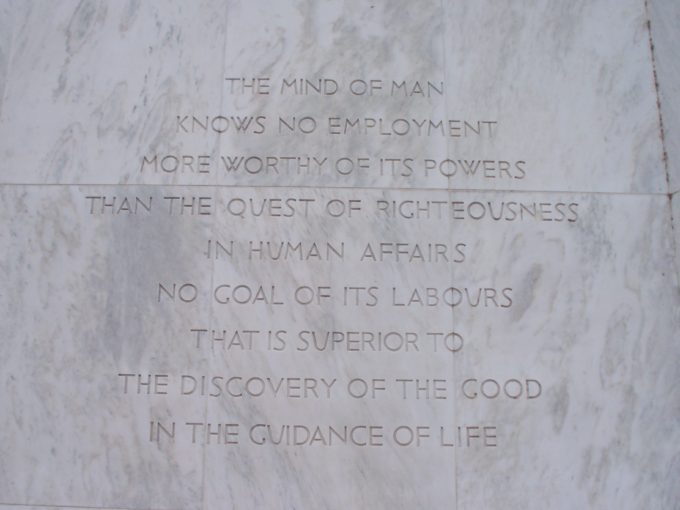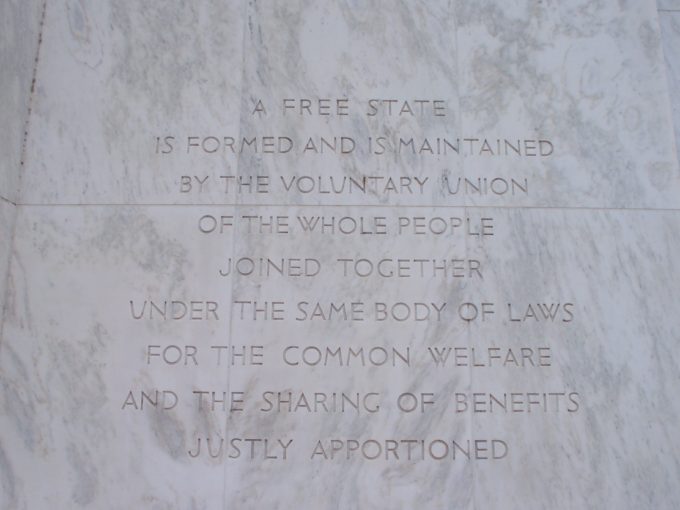
Monday, 8 June 2020
He who has the Son has life; he who does not have the Son of God does not have life. 1 John 5:12
There is an article in front of both instances of “life.” A literal translation would be –
“he who is having the Son, hath the life; he who is not having the Son of God — the life he hath not.” YLT
This version will be used to analyze John’s words.
The words, “the life,” are speaking of the life given by God just referred to in the previous verse where John says, “that God has given us eternal life, and this life is in His Son.” It is this eternal life which he is now speaking of. Understanding this, he begins with, “He who is having the Son, hath the life.”
It is all-encompassing. Anyone who has the Son has eternal life. This is appropriated in only one way – belief. But, as has been seen in John’s words, it is proper belief. John’s epistle has focused on the fact that the Son of God is deity, and that He has come in the flesh – meaning He is the God/Man. If one believes in a Jesus who is God but not man, he does not have the Son. If one believes in a Jesus who is man but not God, he does not have the Son. In either instance, he also does not have the life. Misdirected faith is, after all, wasted faith
With this understood, John next says, “he who is not having the Son of God.” Notice how John has added “of God” to this second clause. Those who have the Son understand that He is of God. There is clarity in their thinking, and they have rightly called on Jesus. He came in the flesh; He is God incarnate. But in the second clause, John is more specific when he speaks of those who do not have the Son of God.
A person who denies the deity of Christ might say, “I believe in Jesus, the Son of God.” They have to say this because the Bible calls Him the Son of God again and again. But how is He the Son of God? Was He created and then adopted? Was it a title conferred on Him without any true family relationship? Or, is He truly the Incarnate Word of God? Anything but the final option means that he does not have the Son of God as is spoken of in the Bible. If this is the case, John says that “the life he hath not.”
In the first clause, the emphasis was on “hath.” If one is having the Son, he HATH the life. It is a certainty. However, in the second clause, the emphasis is on “life.” One who is not having the Son of God, THE LIFE he does not have. He has no connection to God, because he does not have the Son, in whom is THE LIFE.
The tragedy of John’s words is found in the simple notion of either:
1) Never being told about the Son of God,
2) Rejecting the Son of God, or
3) Believing in Jesus as the Son of God incorrectly – by failing to acknowledge the incarnation.
In any of these, the person does not have the Son. In not having the Son, he does not have the life which is found in the Son of God. He remains dead in his sins and forever separated from God.
Life application: God is the source of life. An absolute truth concerning God is that He is the One who alone is Necessary; the One who cannot not exist. Everything and everyone else is contingent on God for its being – both initial being and continued existence. God is the Source of all life. He is therefore pure existence. In John Chapter 1, we read these words –
“But as many as received Him, to them He gave the right to become children of God, to those who believe in His name: 13 who were born, not of blood, nor of the will of the flesh, nor of the will of man, but of God.” John 1:12, 13
Being “born of God” then means to have the same life which is in God – a life which is eternal. John expands on this here when he says, “He who has the Son has life.” In this case, he is using the term synonymously with a personal relationship and acceptance of the work of the Lord Jesus. This is what we know of as being “born again.”
When we call on Jesus, we are no longer merely flesh which perishes, but we are born of God, from above. This is the gift of life which issues from God through the Son. John then turns his sights on those who do “not have the Son of God.”
Anyone who does not have the Son does not have life. Only a fool, a deceiver, or an imbecile could come to any other conclusion than this is what John is saying. God leaves the choice up to us – accept His offer of peace through Jesus Christ the Lord, or be eternally separated from Him. There is no other option, and to say differently is to call God a liar, state His word is in error, and/or to claim the Son is not who He is presented as in Scripture. The choice is up to each of us – may you make the right one.
Lord God, You have given us the choice – life or death, light or darkness, heaven or hell. As incredible as it seems, You have allowed us to choose. May we be faithful to make the proclamation which glorifies You, by saying, “Truly this is the Son of God!” All hail the great and exalted name of Jesus! Amen.




